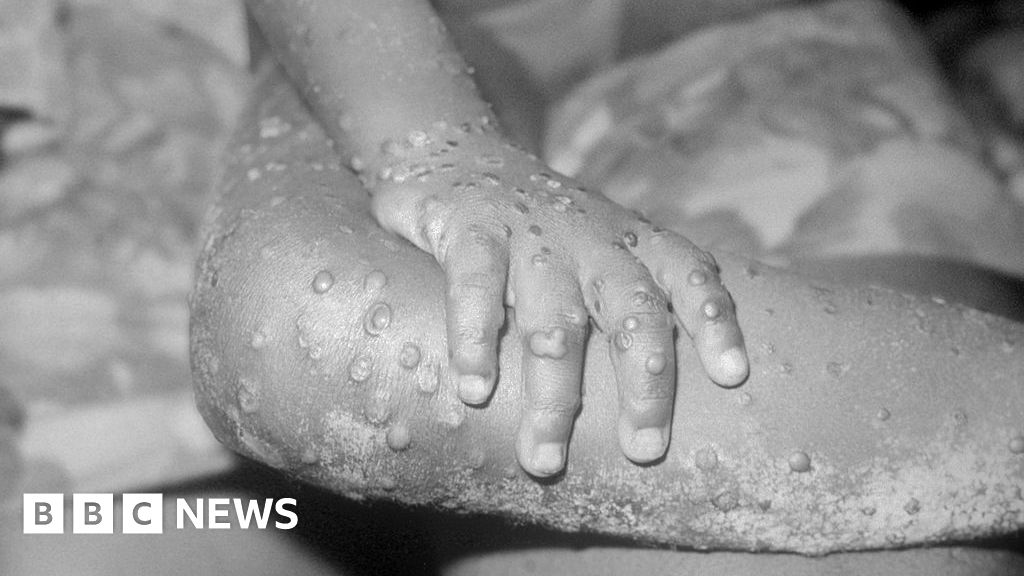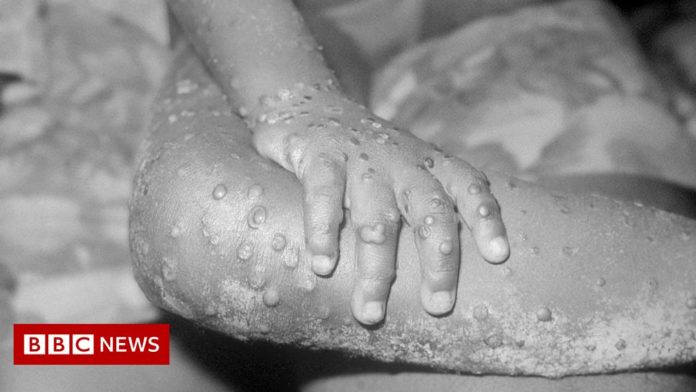
Monkeypox incident management teams have been set up in Northern Ireland and the Republic of Ireland in order to prepare for possible cases of the disease.
The Public Health Agency (PHA) of Northern Ireland said it wanted to “ensure that we are fully prepared for any potential risk to the population”.
Monkeypox is a viral infection that can cause mild flu-like symptoms including fever, headaches, swellings, back pain, aching muscles and a rash.
The UK has so far confirmed 20 cases but none of them are in Northern Ireland. The Republic has no reported cases to date.
‘Low risk’
“Monkeypox is usually a mild self-limiting illness and most people recover within a few weeks, said the PHA’s head of Health Protection, Dr Gillian Armstrong.
“The infection can be passed on through close contact with someone with the infection, or contact with clothing or linens used by a person who has monkeypox.
“However, the virus does not usually spread easily between people and the risk to the Northern Ireland population is considered low.”
The PHA advised anyone who thinks they have been exposed to Monkeypox, or who has “unusual rashes or lesions on any part of their body, especially their genitalia” to phone their local healthcare provider or genitourinary medicine (GUM) clinic.
On Monday, the UK Health Security Agency (UKHSA) said people should isolate for 21 days if they have been in direct or household contact with a confirmed case.
How do you catch monkeypox?
The chair of the Republic of Ireland’s new team, Dr Derval Igoe, said expert groups were working on ways to monitor the disease and surveillance was taking place all over the world.
Speaking on RTÉ’s Morning Ireland programme, Dr Igoe added that “there have been no deaths and there have only been two hospitalisations worldwide due to an illness”.
Dr Igoe is the interim director of the Republic of Ireland’s Health Protection Surveillance Centre.
“We do have a lot of a lot of different professional groups working on this,” she said.
“We have our sexual health and infectious disease experts in the hospitals, also our national isolation unit, the virus reference lab, national immunisation office and the Department of Health.”
Dr Igoe’s team is also working with the Gay Health Network to make sure messages are delivered in a “suitable way” to populations which cases of the virus are being seen in.
She also advised anyone with symptoms to isolate and for anyone with concerns to contact their GP or sexual health clinic.








